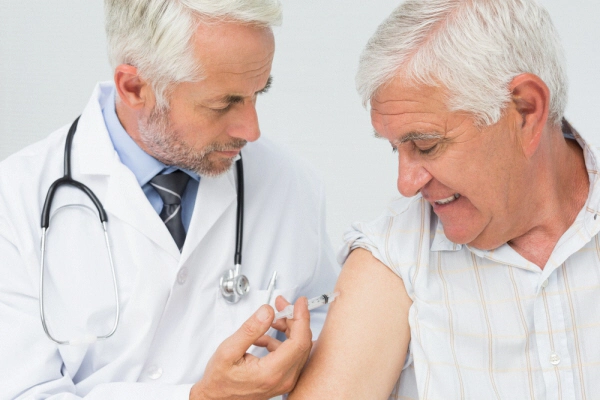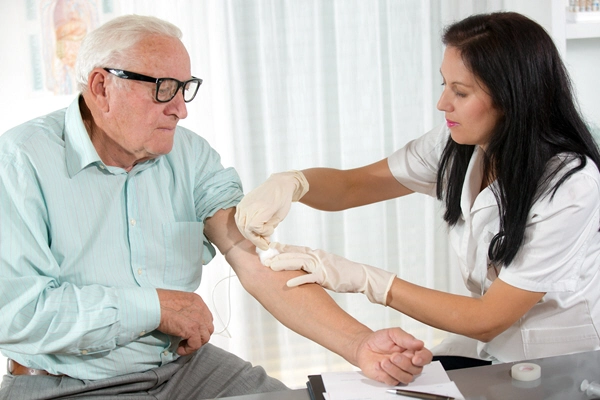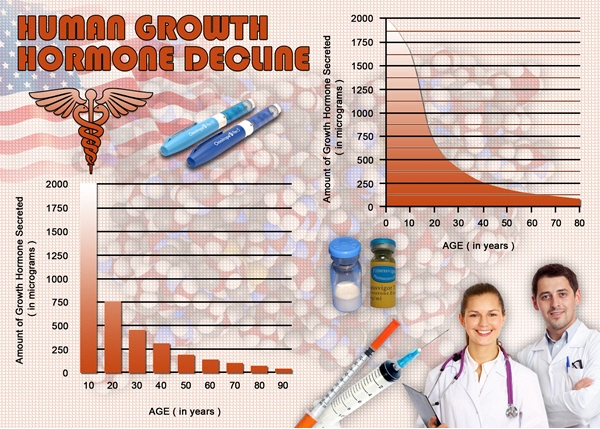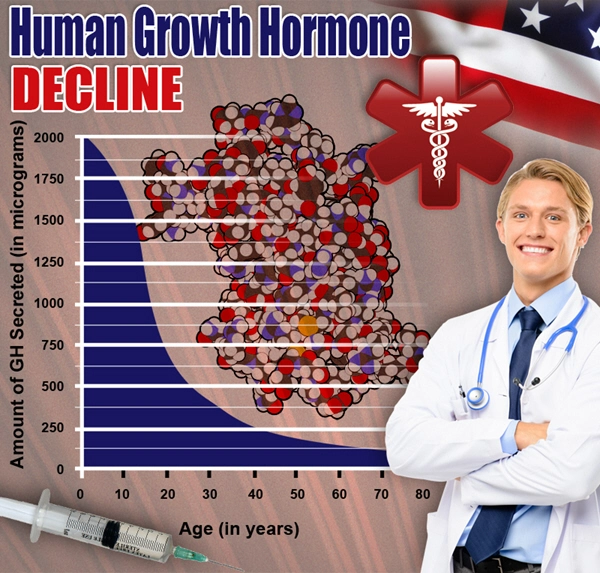Introduction
Hypogonadism, a condition characterized by the body's inability to produce sufficient testosterone, has been increasingly recognized as a significant health concern among American males. Beyond its well-documented effects on sexual health and muscle mass, recent research has shed light on its profound impact on lipid profiles and, consequently, cardiovascular risk. This article delves into the intricate relationship between hypogonadism, lipid metabolism, and cardiovascular health, offering a comprehensive analysis tailored to the American male population.
Understanding Hypogonadism
Hypogonadism can be classified into primary and secondary forms, with the former stemming from testicular failure and the latter from dysfunctions in the hypothalamus or pituitary gland. The prevalence of this condition among American males is notable, with estimates suggesting that up to 40% of men over 45 may experience some degree of testosterone deficiency. The implications of hypogonadism extend far beyond sexual dysfunction, influencing a range of physiological processes, including lipid metabolism.
The Link Between Hypogonadism and Lipid Profiles
Research has consistently demonstrated that hypogonadism is associated with adverse changes in lipid profiles. Specifically, low testosterone levels have been linked to increased levels of total cholesterol, low-density lipoprotein (LDL) cholesterol, and triglycerides, as well as decreased levels of high-density lipoprotein (HDL) cholesterol. These alterations in lipid profiles are significant because they are well-established risk factors for cardiovascular disease (CVD), the leading cause of death among American males.
Mechanisms Underlying Lipid Profile Changes
The mechanisms by which hypogonadism influences lipid metabolism are multifaceted. Testosterone is known to regulate lipid metabolism through several pathways, including the modulation of lipoprotein lipase activity, which is crucial for the hydrolysis of triglycerides. Additionally, testosterone has been shown to influence the hepatic production of apolipoproteins, which are essential components of lipoproteins. The absence of adequate testosterone levels can disrupt these processes, leading to the observed changes in lipid profiles.
Cardiovascular Risk in American Males with Hypogonadism
The altered lipid profiles associated with hypogonadism significantly elevate the risk of cardiovascular events in American males. Studies have shown that men with low testosterone levels are at a higher risk of developing atherosclerosis, a condition characterized by the buildup of plaques in the arteries, which can lead to heart attacks and strokes. Furthermore, hypogonadism has been linked to other cardiovascular risk factors, such as hypertension, insulin resistance, and obesity, creating a complex interplay of factors that compound the risk of CVD.
Clinical Implications and Management
The recognition of hypogonadism as a modifiable risk factor for cardiovascular disease has significant clinical implications. Routine screening for testosterone levels in at-risk American males could facilitate early detection and intervention. Testosterone replacement therapy (TRT) has been shown to improve lipid profiles in hypogonadal men, potentially reducing their cardiovascular risk. However, the decision to initiate TRT should be made on a case-by-case basis, considering the individual's overall health profile and potential contraindications.
Conclusion
Hypogonadism's impact on lipid profiles and cardiovascular health in American males is a critical area of concern that warrants increased attention from healthcare providers. By understanding the complex relationship between testosterone deficiency, lipid metabolism, and cardiovascular risk, clinicians can better tailor preventive and therapeutic strategies to mitigate the burden of cardiovascular disease in this population. As research continues to unravel the intricacies of this relationship, it is imperative that American males remain vigilant about their cardiovascular health, particularly in the context of hypogonadism.

- Hypogonadism and Sleep Disorders: A Bidirectional Link in American Males [Last Updated On: December 21st, 2025] [Originally Added On: February 18th, 2025]
- Understanding and Managing Hypogonadism: A Comprehensive Guide for American Males [Last Updated On: March 11th, 2025] [Originally Added On: March 11th, 2025]
- Unveiling the Link Between Hypogonadism and Mental Health: A Comprehensive Guide for American Males [Last Updated On: March 11th, 2025] [Originally Added On: March 11th, 2025]
- Unveiling the Effects of Hypogonadism on Muscle Vitality in American Males [Last Updated On: March 16th, 2025] [Originally Added On: March 16th, 2025]
- Unraveling the Nexus of Hypogonadism and Autoimmune Diseases: A Comprehensive Guide for American Males [Last Updated On: March 16th, 2025] [Originally Added On: March 16th, 2025]
- Unveiling the Link Between Hypogonadism and Impaired Wound Healing in American Males [Last Updated On: March 16th, 2025] [Originally Added On: March 16th, 2025]
- Unraveling the Nexus of Hypogonadism and Parathyroid Function: Insights for American Males [Last Updated On: March 16th, 2025] [Originally Added On: March 16th, 2025]
- Exercise Boosts Testosterone: Managing Hypogonadism in American Males [Last Updated On: March 18th, 2025] [Originally Added On: March 18th, 2025]
- Hypogonadism's Impact on Liver Function: Management and Monitoring Strategies [Last Updated On: March 18th, 2025] [Originally Added On: March 18th, 2025]
- Hypogonadism and Chronic Pain: Integrated Treatment Approaches for American Males [Last Updated On: March 19th, 2025] [Originally Added On: March 19th, 2025]
- Hypogonadism and Testosterone Therapy: Benefits, Risks, and Considerations for American Males [Last Updated On: March 19th, 2025] [Originally Added On: March 19th, 2025]
- Ethical Considerations in Treating Hypogonadism with Testosterone Therapy in American Men [Last Updated On: March 19th, 2025] [Originally Added On: March 19th, 2025]
- Hypogonadism and Thyroid Dysfunction: Exploring Correlations and Clinical Implications in American Males [Last Updated On: March 20th, 2025] [Originally Added On: March 20th, 2025]
- Hypogonadism and Prostate Health: Understanding Links, Risks, and Management Strategies [Last Updated On: March 20th, 2025] [Originally Added On: March 20th, 2025]
- Understanding Hypogonadism: Causes, Symptoms, and Treatment for American Males [Last Updated On: March 20th, 2025] [Originally Added On: March 20th, 2025]
- Hypogonadism in American Males: Links to Cancer Risk and Management Strategies [Last Updated On: March 20th, 2025] [Originally Added On: March 20th, 2025]
- Hypogonadism's Impact on Men's Health and Quality of Life: Diagnosis, Treatment, and Support [Last Updated On: March 21st, 2025] [Originally Added On: March 21st, 2025]
- Hypogonadism and Autoimmune Disorders: Interplay, Management, and Future Research in American Males [Last Updated On: March 21st, 2025] [Originally Added On: March 21st, 2025]
- Medical Imaging Advances in Diagnosing Hypogonadism: MRI, CT, and Ultrasound Techniques [Last Updated On: March 21st, 2025] [Originally Added On: March 21st, 2025]
- Hypogonadism's Impact on Skin Health in American Males: TRT Benefits and Risks [Last Updated On: March 22nd, 2025] [Originally Added On: March 22nd, 2025]
- Hypogonadism's Impact on Bone Health: Diagnosis, TRT, and Management Strategies [Last Updated On: March 22nd, 2025] [Originally Added On: March 22nd, 2025]
- Managing Hypogonadism: A Collaborative Approach by Medical Specialists [Last Updated On: March 22nd, 2025] [Originally Added On: March 22nd, 2025]
- Exploring Alternative Medicines for Hypogonadism Management in American Males [Last Updated On: March 22nd, 2025] [Originally Added On: March 22nd, 2025]
- Hypogonadism Screening Protocols and Recommendations for American Males [Last Updated On: March 22nd, 2025] [Originally Added On: March 22nd, 2025]
- Hypogonadism in American Males: Addressing Psychological Needs Through Tailored Counseling [Last Updated On: March 23rd, 2025] [Originally Added On: March 23rd, 2025]
- Hypogonadism and Hair Loss: Treatment Options and Outcomes for American Males [Last Updated On: March 23rd, 2025] [Originally Added On: March 23rd, 2025]
- Hypogonadism's Impact on Neurological Health in American Males: Cognitive and Mood Effects [Last Updated On: March 23rd, 2025] [Originally Added On: March 23rd, 2025]
- Hypogonadism's Impact on Gastrointestinal Health in American Males: A Comprehensive Review [Last Updated On: March 24th, 2025] [Originally Added On: March 24th, 2025]
- Hypogonadism and Hearing Loss: Exploring the Hormonal Connection in American Males [Last Updated On: March 24th, 2025] [Originally Added On: March 24th, 2025]
- Managing Hypogonadism in American Males with Kidney Disease: Strategies and Challenges [Last Updated On: March 24th, 2025] [Originally Added On: March 24th, 2025]
- Hypogonadism Treatment Advances: Trends, Therapies, and Lifestyle Interventions [Last Updated On: March 24th, 2025] [Originally Added On: March 24th, 2025]
- Hypogonadism's Impact on Blood Pressure: Symptoms, Management, and Lifestyle Strategies [Last Updated On: March 24th, 2025] [Originally Added On: March 24th, 2025]
- Hypogonadism and Cholesterol: Implications for Cardiovascular Health in American Males [Last Updated On: March 24th, 2025] [Originally Added On: March 24th, 2025]
- Hypogonadism's Impact on Respiratory Health in American Males: Mechanisms and Clinical Insights [Last Updated On: March 24th, 2025] [Originally Added On: March 24th, 2025]
- Medical Innovations Transform Hypogonadism Treatment for American Males [Last Updated On: March 24th, 2025] [Originally Added On: March 24th, 2025]
- Hypogonadism's Impact on Joint Health: Treatment and Management Strategies [Last Updated On: March 25th, 2025] [Originally Added On: March 25th, 2025]
- Hypogonadism and Headaches: Diagnosis, Treatment, and Management Strategies for American Males [Last Updated On: March 25th, 2025] [Originally Added On: March 25th, 2025]
- Medical Nutrition Therapy for Managing Hypogonadism in American Males [Last Updated On: March 26th, 2025] [Originally Added On: March 26th, 2025]
- Hypogonadism's Impact on Muscle Health in American Males: Diagnosis and Treatment Strategies [Last Updated On: March 26th, 2025] [Originally Added On: March 26th, 2025]
- Medical Technology Revolutionizes Hypogonadism Diagnosis in American Males [Last Updated On: March 26th, 2025] [Originally Added On: March 26th, 2025]
- Hypogonadism and Balance Disorders: Exploring the Link and Treatment Options in American Males [Last Updated On: March 26th, 2025] [Originally Added On: March 26th, 2025]
- Hypogonadism and Anemia in American Males: Diagnosis, Management, and Quality of Life [Last Updated On: March 26th, 2025] [Originally Added On: March 26th, 2025]
- Hypogonadism's Impact on Cognitive Function in American Males: A Comprehensive Review [Last Updated On: March 26th, 2025] [Originally Added On: March 26th, 2025]
- Hypogonadism's Impact on Eye Health: A Comprehensive Overview for American Males [Last Updated On: March 26th, 2025] [Originally Added On: March 26th, 2025]
- Medical Rehabilitation for Hypogonadism: Enhancing Quality of Life in American Males [Last Updated On: March 27th, 2025] [Originally Added On: March 27th, 2025]
- Hypogonadism's Impact on Immune Function in American Males: Insights and Therapies [Last Updated On: March 27th, 2025] [Originally Added On: March 27th, 2025]
- Preventing Hypogonadism in American Males: Strategies and Interventions [Last Updated On: March 27th, 2025] [Originally Added On: March 27th, 2025]
- Hypogonadism in Transgender Men: Diagnosis, Treatment, and Personalized Care [Last Updated On: March 27th, 2025] [Originally Added On: March 27th, 2025]
- Hypogonadism's Emotional Impact: Understanding and Managing Mental Health in American Men [Last Updated On: March 27th, 2025] [Originally Added On: March 27th, 2025]
- Hypogonadism and Allergies: Exploring Links and Implications for American Men [Last Updated On: March 27th, 2025] [Originally Added On: March 27th, 2025]
- Hypogonadism's Impact on Dental Health: A Comprehensive Overview for American Males [Last Updated On: March 27th, 2025] [Originally Added On: March 27th, 2025]
- Understanding Hypogonadism: Symptoms, Treatment, and Lifestyle Management for American Males [Last Updated On: March 27th, 2025] [Originally Added On: March 27th, 2025]
- Hypogonadism and GERD: Exploring Hormonal Links and Treatment Implications in American Males [Last Updated On: March 27th, 2025] [Originally Added On: March 27th, 2025]
- Hypogonadism and Vision: Understanding Testosterone's Role and Treatment Strategies [Last Updated On: March 28th, 2025] [Originally Added On: March 28th, 2025]
- Monitoring Hypogonadism in Long-Term Care: Strategies for Enhanced Patient Care [Last Updated On: March 29th, 2025] [Originally Added On: March 29th, 2025]
- Medical Social Workers: Vital Support for Men with Hypogonadism [Last Updated On: March 29th, 2025] [Originally Added On: March 29th, 2025]
- Hypogonadism in American Males: Diagnosis, Treatment, and Management Strategies [Last Updated On: March 30th, 2025] [Originally Added On: March 30th, 2025]
- Managing Hypogonadism-Related Fatigue: Therapies and Lifestyle Strategies [Last Updated On: March 30th, 2025] [Originally Added On: March 30th, 2025]
- Hypogonadism's Impact on Urinary Health: Diagnosis, Management, and Lifestyle Strategies [Last Updated On: April 1st, 2025] [Originally Added On: April 1st, 2025]
- Hypogonadism's Link to Peripheral Neuropathy in American Males: Diagnosis, Treatment, and Research [Last Updated On: April 2nd, 2025] [Originally Added On: April 2nd, 2025]
- Strategies to Enhance Adherence in Hypogonadism Treatment Among American Males [Last Updated On: April 2nd, 2025] [Originally Added On: April 2nd, 2025]
- Hypogonadism Linked to Accelerated Skin Aging in American Men: A Comprehensive Study [Last Updated On: April 4th, 2025] [Originally Added On: April 4th, 2025]
- Hypogonadism's Impact on Sinus Health: Exploring Hormonal Links and Treatment Implications [Last Updated On: April 6th, 2025] [Originally Added On: April 6th, 2025]
- Innovative Medical Devices Revolutionize Hypogonadism Management in American Men [Last Updated On: April 8th, 2025] [Originally Added On: April 8th, 2025]
- Hypogonadism's Impact on Gallbladder Health in American Males: A Comprehensive Overview [Last Updated On: April 8th, 2025] [Originally Added On: April 8th, 2025]
- Hypogonadism in Postmenopausal Women: Symptoms, Treatment, and Support for American Males [Last Updated On: April 9th, 2025] [Originally Added On: April 9th, 2025]
- Hypogonadism's Impact on Nail Health in American Males: Management and Care Strategies [Last Updated On: April 9th, 2025] [Originally Added On: April 9th, 2025]
- Hypogonadism's Impact on Wound Healing in American Males: Testosterone's Crucial Role [Last Updated On: April 9th, 2025] [Originally Added On: April 9th, 2025]
- Hypogonadism Linked to Impaired Lymphatic Function in American Males: Study Insights [Last Updated On: April 10th, 2025] [Originally Added On: April 10th, 2025]
- Empowering Nurses in Hypogonadism Care: Education Strategies and Impact [Last Updated On: April 11th, 2025] [Originally Added On: April 11th, 2025]
- Hypogonadism's Impact on Ear Health: Understanding the Link and Management Strategies [Last Updated On: April 13th, 2025] [Originally Added On: April 13th, 2025]
- Managing Hypogonadism in Men with Chronic Illnesses: Strategies and Challenges [Last Updated On: April 13th, 2025] [Originally Added On: April 13th, 2025]
- Medical Counseling Enhances Hypogonadism Management in American Males [Last Updated On: April 13th, 2025] [Originally Added On: April 13th, 2025]
- Hypogonadism's Impact on Spleen Health: Insights and Implications for American Males [Last Updated On: April 14th, 2025] [Originally Added On: April 14th, 2025]
- Hypogonadism's Impact on Thymus Health in American Males: Symptoms, Management, and Research [Last Updated On: April 16th, 2025] [Originally Added On: April 16th, 2025]
- Hypogonadism in American Males: Symptoms, Endocrine Impact, and Management Strategies [Last Updated On: April 16th, 2025] [Originally Added On: April 16th, 2025]
- Hypogonadism and Pituitary Health: Diagnosis, Treatment, and Management Strategies [Last Updated On: April 17th, 2025] [Originally Added On: April 17th, 2025]
- Nutrition Management of Hypogonadism: Role of Medical Dietitians [Last Updated On: April 17th, 2025] [Originally Added On: April 17th, 2025]
- Hypogonadism and Autoimmune Diseases: Diagnosis, Treatment, and Lifestyle Management for American Males [Last Updated On: April 18th, 2025] [Originally Added On: April 18th, 2025]
- Hypogonadism's Impact on Parathyroid Health in American Males: Diagnosis and Management [Last Updated On: April 18th, 2025] [Originally Added On: April 18th, 2025]



List of USA state clinics - click a flag below for blood testing clinics.
Word Count: 548


















































